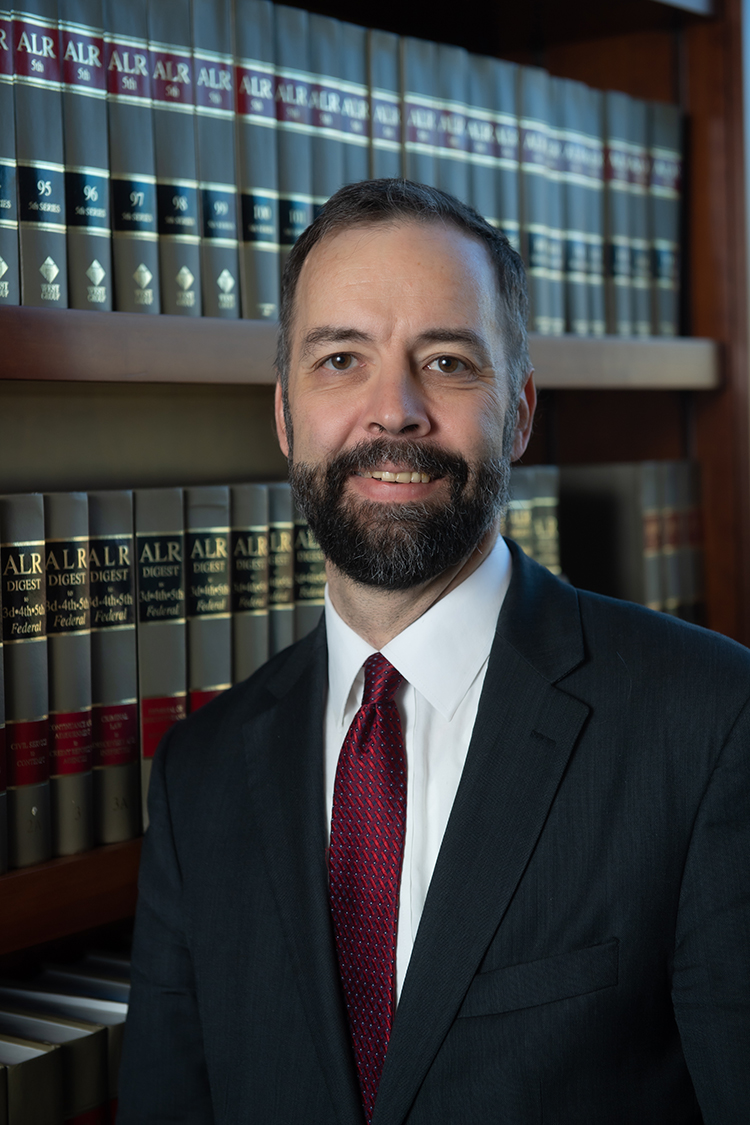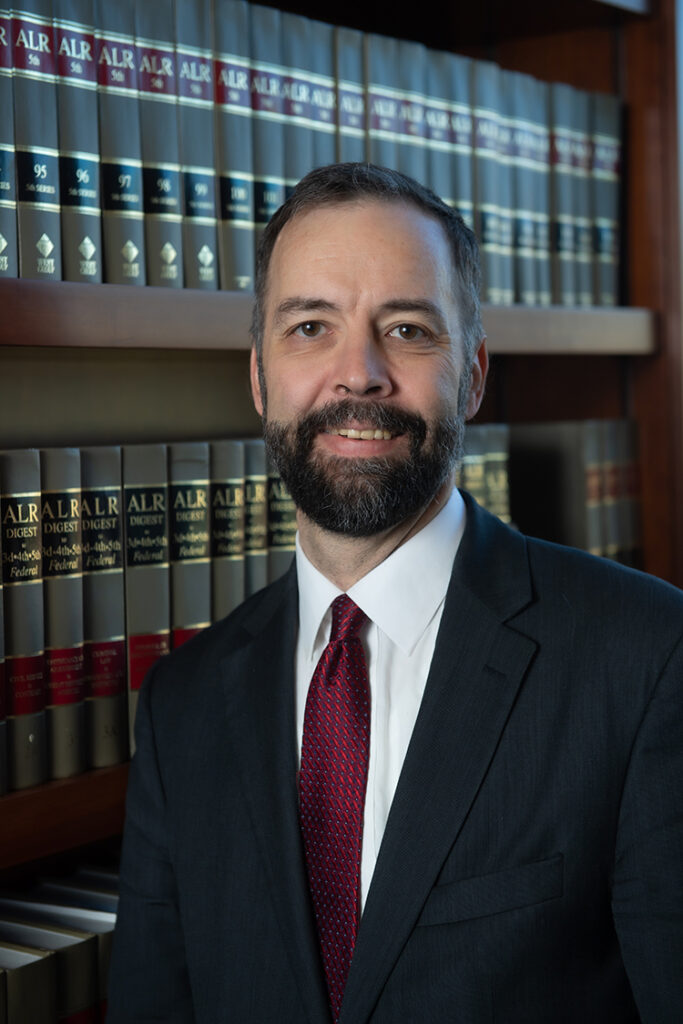
Christopher Green, Jamie L. Whitten chair in Law and Government, professor of law, Khayat School of Law. Photo by Kevin Bain/The University of Mississippi Marketing Communications
Chris Green’s recent article makes multiple appearances in decision to uphold Indian Child Welfare Act
U.S. Supreme Court Justice Neil Gorsuch referenced the work of University of Mississippi law professor Chris Green multiple times in a recent ruling.
In Haaland v. Brackeen, justices voted 7-to-2 to uphold the power of the 1978 Indian Child Welfare Act, which in part provides that if Native American children are removed from a dangerous or unfit home, a preference is to be given to transferring custody to a member of a Native American tribe. The litigants in part challenged the federal government’s authority to make such a determination.
Green, who holds the Jamie L. Whitten Chair of Law and Government, recently published an article in the Penn State Law Review entitled “Tribes, Nations, States: Our Three Commerce Powers,” in which he researched the original meaning of Congress’s power over commerce.
Green’s article highlighted the federal government’s power to govern relationships with tribes as groups of individuals and as sovereign governments. The article gave particular attention to a Supreme Court case from 1866 and early correspondence about the commerce powers between George Washington and his first Attorney General, Edmund Randolph, which both Justice Gorsuch and Justice Clarence Thomas discussed in their opinions.
Gorsuch referenced Green’s article three times in his concurrence with the majority opinion.
“The past is relevant; the past has a lot of details,” Green said. “All this historical stuff we’re digging into, it matters and it’s encouraging to know that it matters to the Supreme Court.”
This is not the first time the Supreme Court has referenced Green’s research, said Ron Rychlak, distinguished professor of law and a fellow Jamie L. Whitten Chair of Law and Government at Ole Miss.
“What really goes to the importance to Chris’ scholarship is he’s giving a rationale for the use of federal power,” Rychlak said. “The highest court in the land is looking at constitutional theory and how we approach the authority of the federal government to act on various matters, and they’re turning to Chris Green’s article to do so.
“He’s influencing them as they make these decisions, and that’s the ultimate compliment you can pay to a legal scholar.”
By Clara Turnage





